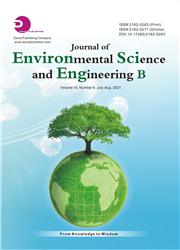Impacts of Stockbreeding on Global Warming
引用次数: 1
Abstract
: The climate change is globally faced by the entire world and humanity with considerably negative impacts on people who live in undeveloped countries in terms of improvement and fighting poverty and who make production by using natural resources. The United Nations Development Fund prepared a Human Development Report on “Fighting Climate Change,” indicating that there are almost 2.6 million poor people in the world will bear the brunt of climate change and ecological conditions. In this respect, emphasis must also be put on the need for considering the people whose source of income usually originates from animal production. In this sense, climate change poses an obstacle on success of the work which is conducted to achieve millennium development goals. The observable changes emerging in climate particularly increases in atmosphere temperature in some regions have an impact on biological life in many regions of the world. Animal production has been considerably intensified in order to meet animal protein deficit which is suffered by the increasing population. The impacts of conventional applications aimed at increasing productivity in animal production have been negative and the people’s attention has started to focus on animal production with the global warming concept and Kyoto Protocol. The animal production might create negative effects on many aspects of environment such as air and water pollution, decrease in soil quality and biodiversity, as well as climate change. The aim of this paper to evaluate animal farming impacts on global warming.畜牧业对全球变暖的影响
:气候变化是全世界和全人类面临的全球性问题,对生活在欠发达国家的人们在改善和消除贫困以及利用自然资源生产方面产生了相当大的负面影响。联合国发展基金会编写了一份关于“应对气候变化”的人类发展报告,指出世界上有近260万穷人将首当其冲地受到气候变化和生态条件的影响。在这方面,还必须强调需要考虑那些收入来源通常来自动物生产的人。从这个意义上说,气候变化阻碍了为实现千年发展目标而开展的工作取得成功。气候出现的明显变化,特别是一些地区大气温度的升高,对世界许多地区的生物生命产生了影响。动物生产已经大大加强,以满足日益增长的人口所遭受的动物蛋白质短缺。旨在提高动物生产生产力的传统应用产生了负面影响,随着全球变暖的概念和《京都议定书》,人们的注意力开始集中在动物生产上。动物生产可能会对环境的许多方面产生负面影响,如空气和水污染、土壤质量和生物多样性下降以及气候变化。本文的目的是评估畜牧业对全球变暖的影响。
本文章由计算机程序翻译,如有差异,请以英文原文为准。
求助全文
约1分钟内获得全文
求助全文

 求助内容:
求助内容: 应助结果提醒方式:
应助结果提醒方式:


